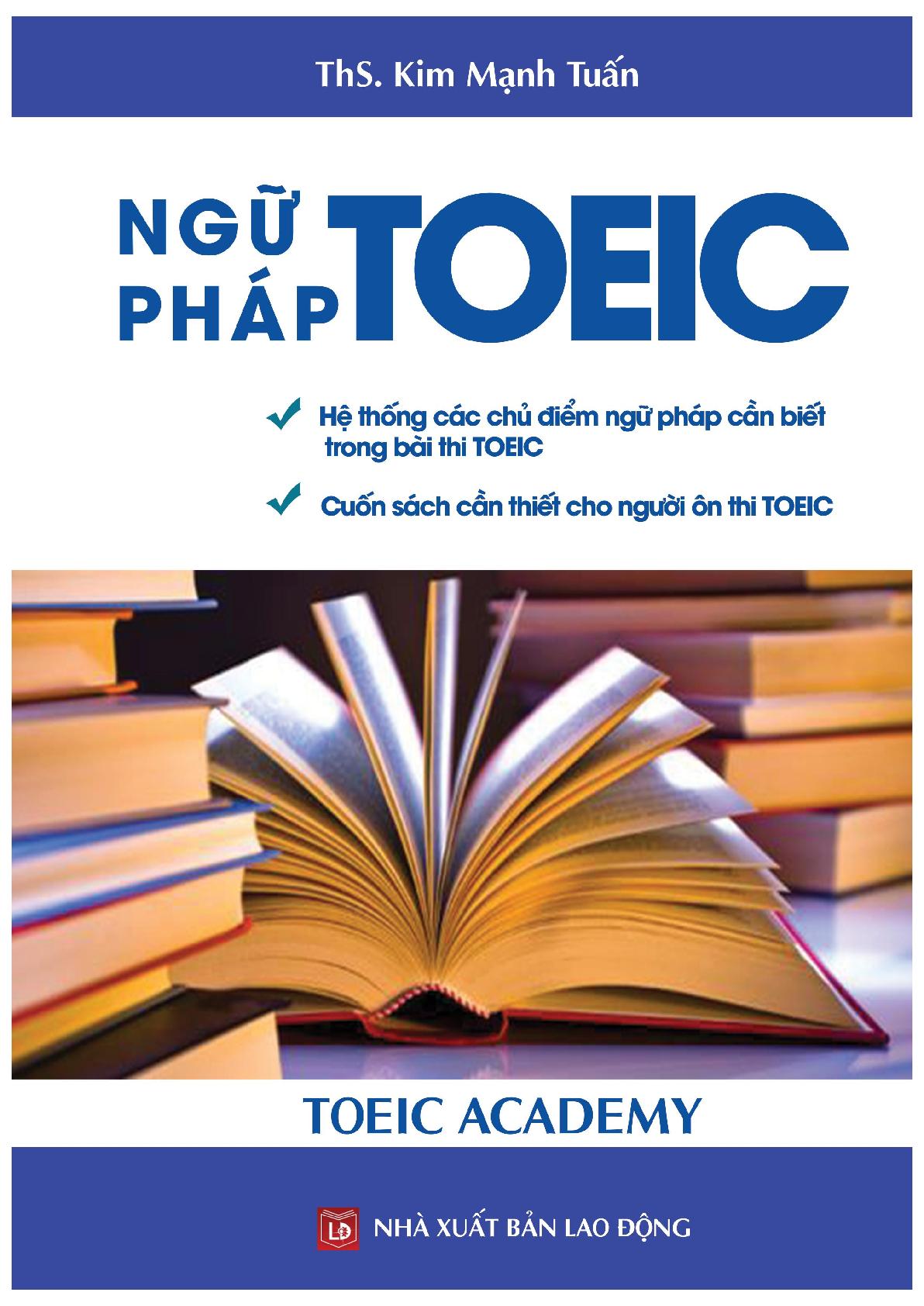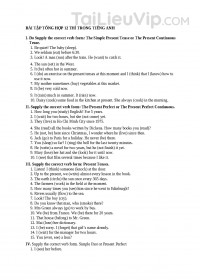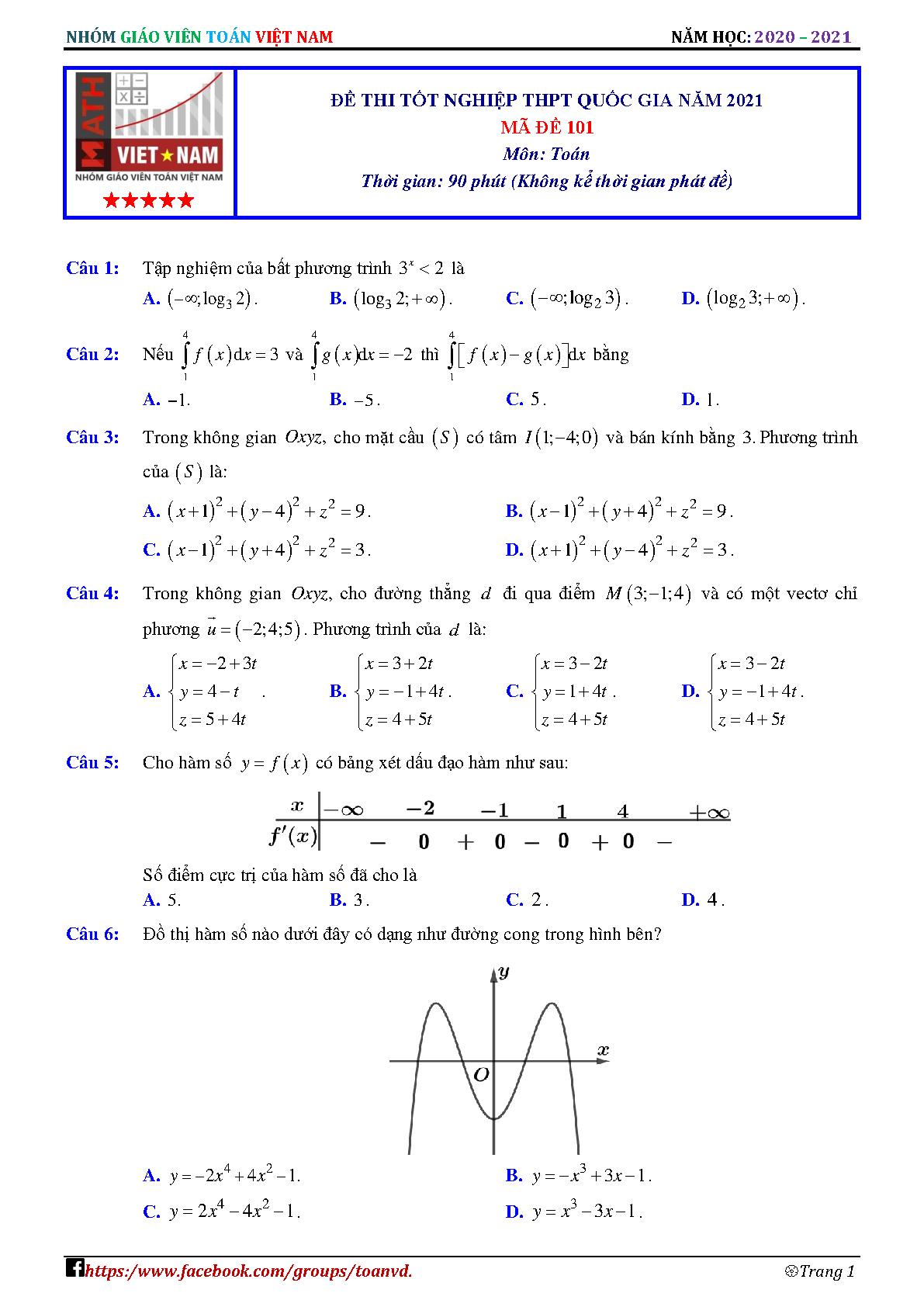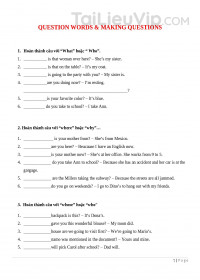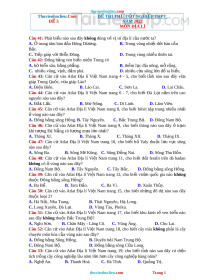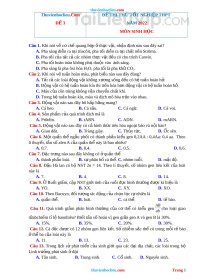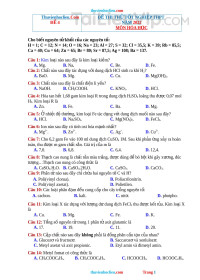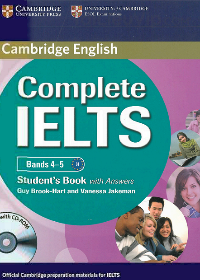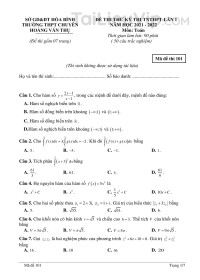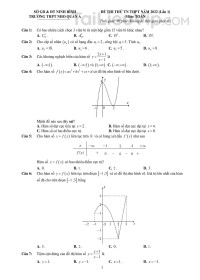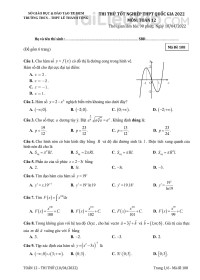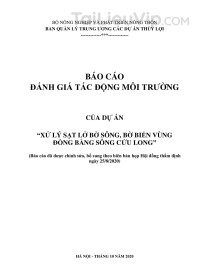Word Formation and Word Order (Cách thành lập từ và Trật tự từ) + Kèm Bài Tập vận dụng chi tiết và đầy đủ nhất
1,500 32

Tải về máy để xem đầy đủ hơn, bản xem trước là bản PDF
Tags: #WORD FORMATION AND WORD ORDER#Cách thành lập từ và Trật tự từ#Bài tập Word Form
Mô tả chi tiết
WORD FORMATION AND WORD ORDER
(Cách thành lập từ và Trật tự từ)
I. Cách thành lập từ (Word Formations)
1.Thành lập danh từ (Noun formations)
a.Một số danh từ được thành lập bằng cách thêm các hậu tố (suffixes) vào sau động từ (verb), danh từ (noun) hoặc tính từ (adjective).
-VERB + ment/ al
invest → investment (sự đầu tư)
amuse → amusement (trò vui)
approve → approval (sự tán thành)
propose → proposal (lời đề nghị)
-VERB + tion/ ation
introduce → introduction (sự giới thiệu)
invent → invention (sự phát minh)
explain → explanation (lời giải thích)
-VERB + ance / ence
attend → attendance (sự tham dự)
depend → dependence (sự phụ thuộc)
-VERB + or / er / ar / ant / ee (chỉ người
(Cách thành lập từ và Trật tự từ)
I. Cách thành lập từ (Word Formations)
1.Thành lập danh từ (Noun formations)
a.Một số danh từ được thành lập bằng cách thêm các hậu tố (suffixes) vào sau động từ (verb), danh từ (noun) hoặc tính từ (adjective).
-VERB + ment/ al
invest → investment (sự đầu tư)
amuse → amusement (trò vui)
approve → approval (sự tán thành)
propose → proposal (lời đề nghị)
-VERB + tion/ ation
introduce → introduction (sự giới thiệu)
invent → invention (sự phát minh)
explain → explanation (lời giải thích)
-VERB + ance / ence
attend → attendance (sự tham dự)
depend → dependence (sự phụ thuộc)
-VERB + or / er / ar / ant / ee (chỉ người

Nội dung
MODULE 19:WORD FORMATION AND WORD ORDER(Cách thành l ậ p từ và Trật tự từ)I. Cách thành lập từ (Word Formations)1. Thành lập danh từ (Noun formations)a. Một số danh từ được thành lập bằng cách thêm các hậu tố (suffixes) vào sau động từ(verb), danh từ (noun) hoặc tính từ (adjective).- VERB + ment/ alinvest → investment (sự đ ầ u tư)amuse → amusement (trò vui)approve → approval (sự tán thành)propose → proposal (lời đ ề nghị)- VERB + tion/ at i onintroduce → introduction (sự giới thiệu)invent → invention (sự phát minh)explain → explanation (lời giải thích)- VERB + ance / enceattend → attendance (sự tham dự)depend → dependence (sự phụ thuộc)- VERB + or / er / ar / ant / ee (chỉ người)learn → learner (học viên)educate → educator (nhà giáo dục)beg → beggar (người ăn xin)employ → employee (nhân viên)- VERB + ing / ypaint painting (bức tranh)discover → discovery (điều khám phá)- VERB + ure / ageexpose → exposure (sự tiếp xúc)drain → drainage (sự tháo nước)- NOUN + ship / hoodfriend → friendship (tình bạn)brother → brotherhood (tình anh em)- NOUN + ism (nói về chủ nghĩa hoặc học thuyết)capital → capitalism (chủ nghĩa tư bản)- ADJECTIVE + ce / ityimportant → importance (t ầ m quan trọng)mature → maturity (sự trưởng thành)- ADJECTIVE + ness / domsick → sickness (căn bệnh)free → freedom (sự tự do)- ADJECTIVE + ismsocial → socialism (ch ủ nghĩa xã hội)formal → formalism (chủ nghĩa hình thức)b. Một số danh từ đuợc thành lập bàng cách thêm tiên tố (prefixes) vào trước một danh từ.- super / under + NOUNmarket → supermarket (siêu thị)current → undercurrent (dòng nước ngầm)- sur / sub + NOUNface → surface (bề mặt)standard → substandard (dưới tiêu chuẩn)2. Thành lập động từ (Verb formations)a. Động từ thường được thành lập b ằ ng cách thêm hậu tố (suffixes) hoặc tiền tố (prefixes)vào danh từ, tính từ hoặc động từ khác.- NOUN + fybeauty → beautify (làm đẹp)identity → identify (nhận dạng)- NOUN/ ADJECTIVE + ize / isesocial → socialize (xã hội hóa)symbol → symbolize (tượng trưng cho)- ADJECTIVE + entight → tighten (th ắ t chặt)weak → weaken (làm suy yếu)- en + NOUN / ADJECTIVEdanger → endanger (gây nguy hại)rich → enrich (làm giàu)- over/ under/ super + VERBact → overact (diễn cường điệu)estimate → underestimate (đánh giá th ấ p)b. Một số ngoại động từ (transitive verbs) được thành lập bằng cách thêm tiên tố out- vào nộiđộng từ (intransitive verbs).go → outgo (trội hơn) weigh → outweigh (nặng hơn)* Ngoại động từ (transitive verbs) là động từ luôn có tân ngữ trực tiếp (direct object) theosau.* Nội động từ (intransitive verbs) là động từ không cần có tân ngữ (object).3. Thành lập tính từ (Adjective formations)a. Một số tính từ được thành lập bằng cách thêm hậu tố (suffixes) vào sau danh từ hoặc độngtừ.- NOUN + ful / lessharm → harmful / harmless (có hại / vô hại)use → useful / useless (có ích / vô ích)- NOUN + y / lyrain → rainy (có mưa)year → yearly (h ằ ng năm)- NOUN + alculture → cultural (thuộc văn hóa)music musical (thuộc âm nhạc)- NOUN + ous / ableadventure → adventurous (mạo hiềm)comfort → comfortable (thoải mái)- NOUN + ish/ likeself → selfish (ích kỳ)child → childlike (như trẻ con)- VERB + iveact → active (tích cực)attract → attractive (hấp dẫn, lôi cuốn)- VERB + able /ibleaccept → acceptable (có th ể ch ấ p nhận)reduce → reducible (có th ể suy giảm)- VERB + ing / edinterest → interesting / interested (thú vị)b. Một số tính từ mang nghĩa phủ định đuợc thành lập bằng cách thêm tiền tố phủ định (un-,in-, im-, ir-, il-, dis-) vào tru ớ c tính từ.happy → unhappy (không hạnh phúc)formal → informal (thân mật)patient → impatient (thiếu kiên nhẫn)regular → irregular (bất thường)legal → illegal (bất hợp pháp)honest → dishonest (không thành thật)4. Thành lập trạng từ (Adverb formations)Trạng từ thuờng được thành lập b ằ ng cách thêm hậu tố -ly vào sau tính từ.quiet → quietly (một cách yên tĩnh)lucky → luckily (một cách may m ắ n)careful → carefully (một cách cẩn thận)* Ngoại lệ: good → well (tốt, giỏi)hard → hard (khó khăn, chăm chỉ)fast → fast (nhanh)late → late/ lately (trễ/ mới đây)II. Trật tự từ (Word Order)1. Danh từ (Nouns): Danh từ thường đứng ở các vị trí- Chủ ngữ (subject) hoặc tân ngữ (object) của câu.Ex: Pollution is harmful to our health.(Sự ô nhiễm có hại cho sức khỏe của chúng ta.)I bought the painting yesterday.(Tôi mua bức tranh này hôm qua.)- Sau các tính từ hoặc tính từ sở hữu (his, my, her,...).Ex: His mother is a good teacher. (Mẹ anh ấy là giáo viên giỏi.)- Sau enough và các từ chi số lượng ( much, many, some, any, most, few,...).Ex: We don’t have enough money to buy that house.(Chúng tôi không có đủ ti ề n mua ngôi nhà đó.)ADJECTIVE + l y → ADVERBDidn’t you borrow some books of mine?(Có phải bạn đã mượn vài cuốn sách c ủ a tôi?)- Sau các mạo t ừ (a, an, the), từ hạn định (this, that, each, every, both,...) và các giới từ (in,on, of, with,...). Lưu ý cấu trúc a/ an/ the/...+ Adj + N.Ex: The dolphin is an intelligent animal.(Cá heo là loài vật thông minh.)She was lying in bed. (Cô ấy đang nằm trên giường.)2. Tính từ (Adjectives): Tính từ thường đứng ở các vị trí- Trước danh từ.Ex: She has very modern ideas about educating her children.(Bà ấy có quan đi ể m dạy con rất hiện đại.)• Trật tự của tính từ đứng trước danh từKhi có nhiều tính từ trước danh từ, các tính từ được viết theo trật tự sau:Ex: a fat old white horse (một con ngựa tr ắ ng già, mập mạp)a beautiful small round black leather handbag (một cái túi xách tay bằng da, tròn,nhỏ, màu đen rất x i nh xắn)an enormous brown German glass beer mug (một cái cốc uống bia của Đức, to, màunâu và làm bằng thủy tinh)- Sau các hệ từ (linking verbs) be, get, seem, appear, feel, taste, look, smell, become và saukeep/ make + object.Ex: You look happy now. (Lúc này trông các bạn thật hạnh phúc.)The news made her happy. (Tin đó làm cô ấy vui.)- Sau too, trước enough và trong cấu trúc so... that.Ex: He’s too short to play basketball.(Anh ấy quá thấp không th ể ch ơ i bóng rổ được.)He isn’t tall enough to play basketball.(Anh ấy không đủ cao đ ể ch ơ i bóng r ổ .)She was so angry that she couldn’t speak.(Bà ấy giận đến mức không nói được.)- Trong câu so sánh và câu cảm thán với How và What.Ex: He is as deaf as a post, (ông ta điếc đặc.)opinion size age shape color origin material type purpose + NkíchHow beautiful the girl is! (Cô gái đó xinh xắn quá!)3. Trạng từ (Adverbs): Trạng từ thuờng đứng ở các vị trí- Sau tr ợ động từ, động từ to be và truớc động từ thường.Ex: I have recently meet him at the supermarket.(Tôi vừa gặp anh ấy ở siêu thị.)He often goes to bed late. (Anh ấy thường đi ngủ trễ.)- Trước tính từ.Ex: An extremely pretty woman entered the room.(Một người phụ nữ cực kỳ duyên dáng bước vào phòng.)- Sau too, trước enough và trong cấu trúc so... that.Ex: She came too late to see him yesterday.(Hôm qua cô ấy đến quá trễ nên không gặp được anh ta.)- Cuối câu hoặc đôi khi đứng một mình ở đầu câu và cách câu bằng dấu phẩy.Ex: We’ll let you know our decision next week.(Tuần sau chúng tôi sẽ cho các bạn biết quyết định của chúng tôi.)Fortunately, there were enough seats left for the concert.(Rất may là buổi hòa nhạc vẫn còn đủ chỗ.)• V ị trí của các loại trạng từa. Trạng từ chỉ thời gian (Adverbs of Time) thường được đặt ở đầu câu hoặc cuối câu.Ex: Can you do it now? (Anh làm việc đó ngay được không ? )b. Trạng từ chỉ n ơ i chốn (Adverbs of Place) đứng sau động từ, tân ngữ và trước trạng từ ch ỉthời gian nếu trạng từ ch ỉ thời gian đặt ở cuối câu.Ex: John is standing there. (John đang đứng ở đ ằ ng kia.)I will take you home this evening. (Tôi sẽ đưa bạn về nhà tối nay.)c. Trạng từ chỉ thể cách (Adverbs of Manner) thường được đặt sau trạng từ chỉ mức độ, độngtừ, tân ngữ, cuối câu hoặc trước tính từ.Ex: Jack drives very carefully. (John lái xe rất cẩn thận.)d. Trạng từ năng diễn (Adverbs of Frequency) thường đứng sau động từ to be, tr ợ động từ vàtrước động từ thường.Ex: I am usually busy on Monday. (Tôi thường bận rộn vào th ứ Hai.)* Trạng từ năng diễn có thể đặt ở đầu câu trong truờng hợp nhấn mạnh (Xem phầnInversion.)e. Trạng từ chỉ mức độ (Adverbs of Degree) thuờng được đặt ở sau động từ hoặc ở cuối câu.Ex: They like playing golf a lot. (Họ rất thích chơi gôn.)f. Trạng từ ch ỉ ý kiến (Adverbs of Comment) thường được đặt ở đầu câu.Ex: Luckily, I was able to come to the presentation.(May là tôi đã có th ể đến xem buổi diễn.)4. Động từ (Verbs): Động từ thường đứng sau chủ ngữ.Ex: I believe her because she always tells the truth.(Tôi tin cô ấy vì cô ấy luôn nói thật.)MULTIPLE CHOICEChoose a , b, c, or d that best completes the sentence.1. The fire-prevention system is ________ by any small increase in temperature.A. active B. activated C. acted D. acting2. She was completely ________ because she was wearing a mask and sunglasses.A. recognize B. recognition C. recognizable D. unrecognizable3. A laser beam consists of a ________ of pure light.A. concentrate B. concentration C. concentrative D. concentrating4. Laser beams have been used for cancer ________A. treat B. treatable C. untreatable D. treatment5. To ________ in a job interview, you should arrive on time, be well-dressed, and keep________ when answering the questions.A. successfully / calm B. successful / calmnessC. success / calmly D. succeed / calm6. Air pollution happens when wastes are poured into the atmosphere and the air becomes________ and unpleasant to breathe.A. contaminate B. contamination C. contaminated D. contaminative7. The practice of ________ is also known as farming.A. agriculture B. agricultural C. agriculturally D. agriculturalist8. A (an) ________ home environment can affect a child’ ________.A. happiness / behavioral B. happy / behaveC. unhappiness / behave D. unhappy / behavior9. Isaac Newton laid the ________ for many other discoveries in mathematics and physics.A. found B. founded C. founder D. foundation10. The geneticists have discovered the laws of ________A. inherit B. inheritance C. inheritor D. inheritable11. The most serious cause of pollution is the ________ of industry.A. develop B. development C. developmental D. developed12. We earn our ________ by raising cattle and chicken.A. live B. life C. living D. lives13. Marilyn Monroe was very ________ in 1960s.A. famous B. famously C. fame D. famousness14. That car is ________A. surprisingly expensive B. surprised expensivelyC. surprise expense D. surprising expensiveness15. Smoking has ________ effects on our health.A. harm B. harmful C. harmfully D. harmlessly16. Something went ________ with my computer so I could not complete my work.A. wrong B. wrongly C. wrongness D. wrongfulness 17. He looked at the picture ________ without saying a word.A. attentive B. attention C. attentively D. attentiveness18. Vitamin D helps us not only build ________ teeth and bones but also absorb calcium.A. strong B. strength C. strongly D. strengthen19. Every day, people dispose ________ waste from both domestic and ________ sourceswithout paying any attention to the bad results.A. wanting / commerce B. unwanted / commercializeC. wanted / commercially D. unwanted / commercial20. My mother has just bought an ________ washing machine.A. automation B. automate C. automatic D. automatically21. Many teenagers are not well - ________ for ________A. prepare / employer B. prepared / employmentC. preparation / unemployed D. preparative / employee22. They have little ________ about ________ Technology.A. knowledgeable / Inform B. knowledge / InformationC. knowable / Informing D. know / Informative23. Railroads, airplanes, cars and highways make it ________ to travel.A. easy B. ease C. easily D. easiness24. English provides you with ready access to higher ________A. promote B. promoter C. promotion D. promotional25. It is very important for children to do something ________, such as to play some musicalinstrument, paint, and play football.A. create and athlete B. creatively and athleticsC. creative and athletic D. creation and athletically26. The ________ of automobile has created a demand for petrolA. invent / consume B. inventive / consumerC. inventor / consuming D. invention / consumption27. We find it ________ to do housework.A. bore B. bored C. boring D. boringly28. ________ does not interest me as much as literature.A. Economics B. Economy C. Economic D. Economical29. Almost every language in the world has dialects and American English is no ________A. except B. exceptive C. exception D. exceptional30. Laura failed to give ________ reasons for her ________ from the meeting yesterday.A. satisfactory / absence B. satisfy / absentC. satisfaction / absently D. satisfied / absence31. John is a student of ________ He will graduate from the ________ college next month.A. medication / medically B. medical / medicalC. medical / medicine D. medicine / medical32. They found it ________ to solve their problems.A. impossible B. impossibly C. impossibility D. possibility33. Efforts to begin the ________ on the bridge began as early as 1928.A. construct B. constructor C. construction D. constructive34. The population of Greater London is about 7.2 million (2001 census), making it the most________ city in the United Kingdom.A. population B. populous C. populously D. populousness35. There are different ________ in school systems today.A. acts B. actions C. activities D. actors36. The city lifestyle seems not to get on well with her. She did not get much ________ ineverything.A. success B. succeed C. successful D. successfully37. We are in ________ of the campaign to end illiteracy among teenagers.A. support B. supportive C. supporter D. supportively38. I do not know which picture books are suitable for my little son. Have you got any________?A. recommend B. recommender C. recommendation D. recommendable39. ________ and cultural places in our country should be given appropriate care.A. History B. Historian C. Historical D. Historically40. It is important to protect landscapes from the harmful effects of ________ pollution.A. environment B. environmentalistC. environmentalism D. environmental41. China is a huge country, containing a ________ of culture and ________ of landscape.A. rich / diverse B. richly / diverselyC. richness / diversity D. riches / diversity42. Do not use time and money ________A. care B. careful C. careless D. carelessly43. To be ________, I think you have made a wrong ________A. honest / decision B. honesty / decideC. honestly / decisive D. dishonestly / decider44. ________ of wildlife is happening frequently all over the world.A. Destroy B. Destruction C. Destructive D. Destructively45. Thanks to ________ environmentalists and conservationists, many kinds of plants andanimals are protected.A. enthusiast B. enthusiasm C. enthusiastic D. enthusiastically46. Humans have caused a lot of ________ to the environment, and now they have to suffer from________ pollution.A. damageable / seriousness B. damaging / seriousC. damage / serious D. damage / seriously47. People are more aware of the ________ of music in treating mental ________A. important / illness B. importantly / illnessC. important / ill D. importance / illness48. Conservation is a more and more of a ________A. necessity B. necessary C. necessarily D. necessitate49. Most of the wastes from factories are ________ They are ________ our environment.A. poisonous / poisoning B. poison / poisonedC. poisonously / poisoned D. poisons / poisoner
- Xem thêm -


